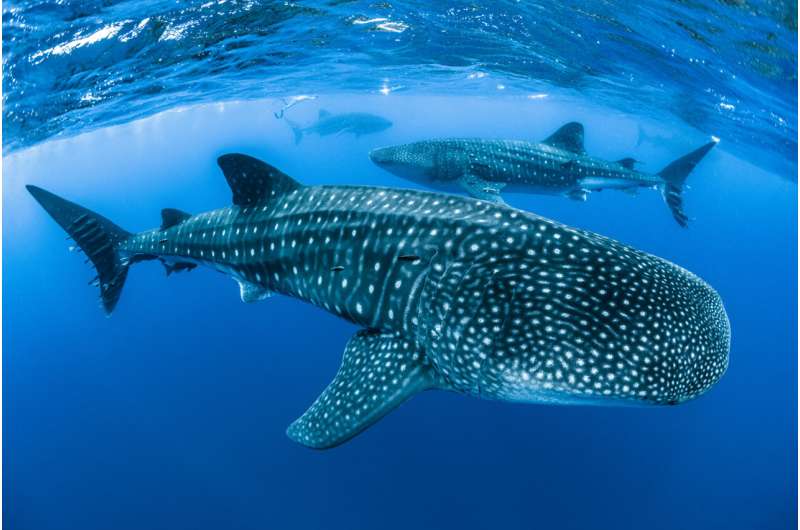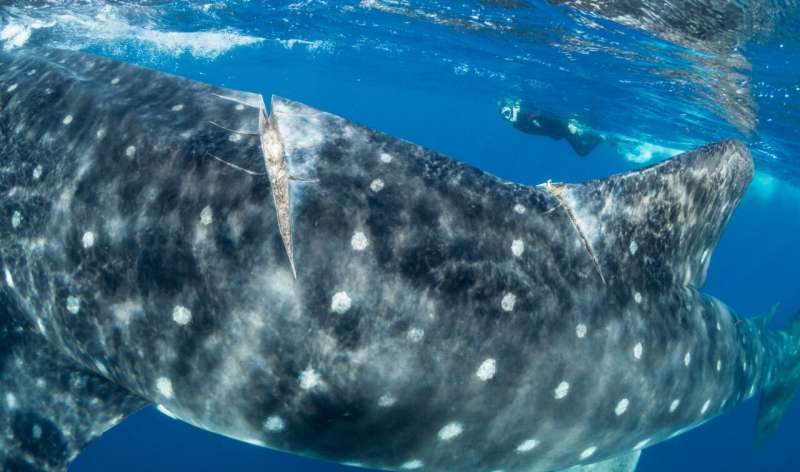
Marine biologists from the Marine Biological Association and the University ofSouthampton have led ground-breaking research which shows that whale shark deaths are vastly underestimated and could be the reason why populations are falling.
It is not clear why whale shark numbers are declining in many locations.
Because whale sharks spend a large amount of time in surface waters and gather in coastal regions, experts theorize that collision with ships could be causing substantial whale shark deaths.
Scientists from 50 international research institutions and universities tracked the movements of both whale sharks and ships across the globe to identify areas of risk. Satellite tracked movement data from nearly 350 whale sharks was submitted to the Global Shark Movement Project.
The team mapped shark "hot spots" which overlap with global fleets of cargo, tanker, passenger, and fishing vessels, and the types of large ships capable of striking and killing a whale shark.
The study showed that whale shark tag transmissions were ending more often in busy shipping lanes than they should have been. The team concluded that the loss of transmissions was most likely due to whale sharks being struck and killed.

The decline of whale sharks may be due to the maritime shipping industry that allows us to source a variety of everyday products from all over the world.
Whale sharks can grow up to 20m in length and can feed on zooplankton. Whale sharks help regulate the ocean's plankton levels and play an important role in the marine food web.
Some of the tags recording depth as well as location showed whale sharks moving into shipping lanes and then sinking slowly to the seafloor hundreds of meters below.
It is sad to think that many deaths of these incredible animals have occurred globally due to ships without us even knowing to take preventative measures.

There are no international regulations to protect whale sharks. The species faces an uncertain future if action is not taken soon. They hope that their findings will inform management decisions and help protect whale sharks from further population declines.
Womersley said that we need to put time and energy into developing strategies to protect this species from commercial shipping now, before it is too late, so that the largest fish on Earth can survive.
The study paper was published in the journal.
More information: Global collision-risk hotspots of marine traffic and the world's largest fish, the whale shark, Proceedings of the National Academy of Sciences (2022). DOI: 10.1073/pnas.2117440119 Journal information: Proceedings of the National Academy of Sciences Citation: Shipping poses significant threat to the endangered whale shark (2022, May 9) retrieved 9 May 2022 from https://phys.org/news/2022-05-shipping-poses-significant-threat-endangered.html This document is subject to copyright. Apart from any fair dealing for the purpose of private study or research, no part may be reproduced without the written permission. The content is provided for information purposes only.